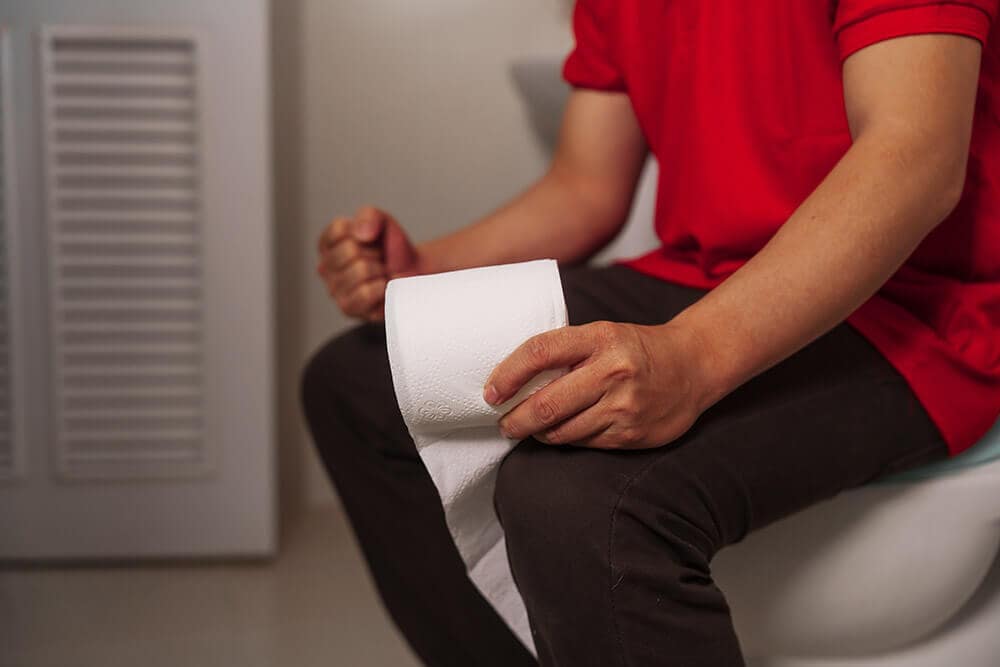What Is Fecal Incontinence?
Fecal incontinence means you cannot fully control your bowel movements. It can range from occasional small leaks to more serious accidents that interfere with your daily life, work, and social confidence. This condition is coded as ICD-10 K59.2. At GastroDoxs in Houston, Dr. Rishi Chadha provides compassionate, expert care in a private, respectful setting.
Common Causes and Risk Factors
- Weak pelvic muscles due to aging
- Injuries from childbirth or episiotomy
- Nerve damage from diabetes or spinal injuries
- Past surgery or radiation in the rectal area
- Chronic constipation or diarrhea
- Obesity or frequent heavy lifting
Signs and Symptoms
- Sudden, strong urges to pass stool
- Accidental leakage of stool even when trying to hold it
- Soiled underwear or clothing
- Difficulty holding in gas
- Diarrhea or constipation that leads to accidents
How Dr. Rishi Diagnoses Fecal Incontinence?
Dr. Chadha uses a thorough, step-by-step approach:
Medical History and Physical Exam
He reviews your complete health history-including bowel habits, prior surgeries, childbirth injuries, and any urinary incontinence-and performs a gentle physical exam to assess pelvic floor and sphincter muscle strength.
Laboratory Tests
Stool analysis is done to rule out infections, inflammation, malabsorption, or other causes of chronic diarrhea or irritation.
Functional and Imaging Studies
- Anorectal Manometry - measures the strength and coordination of your anal sphincter and pelvic floor muscles.
- Endoanal Ultrasound - uses a small probe to visualize the internal and external sphincter muscles for tears or defects.
- Defecography - a specialized X-ray or MRI taken while you evacuate contrast material, showing how stool moves through and out of the rectum.
Additional Testing (if needed)
In select cases, further evaluation'such as neurological studies or referral for biofeedback assessment with a pelvic floor physical therapist-may be recommended to fine-tune the diagnosis.

Frequently Asked Questions
What is the ICD-10 code for fecal incontinence?
The ICD-10 code for fecal incontinence is K59.2. It's used for medical records and billing.
What causes fecal incontinence?
Common causes include weakened pelvic muscles, nerve damage (from diabetes or spinal injury), childbirth or surgical trauma, chronic diarrhea or constipation, and radiation therapy.
Can exercises help with fecal incontinence?
Yes. Pelvic floor exercises (Kegel exercises) can strengthen the muscles that control bowel movements and reduce leaks over time.
Will changing my diet improve my symptoms?
Often, yes. A high-fiber diet, adequate hydration, and regular eating schedules can bulk up stool and help you maintain better control.
Are urinary and fecal incontinence connected?
They can be. Both conditions may result from weakened pelvic floor muscles or nerve damage, especially after childbirth or pelvic surgery.
When should I see a specialist?
If you experience stool leaks more than once a month, frequent urges, or if incontinence impacts your daily life, you should consult a specialist.
What tests will Dr. Chadha perform?
He may recommend anorectal manometry to measure muscle strength, endoanal ultrasound for muscle integrity, defecography to assess evacuation, and stool tests for infections or inflammation.
Is surgery necessary for fecal incontinence?
Surgery (e.g., sphincter repair) is considered only when conservative measures and minimally invasive therapies haven-t provided relief.
Is treatment covered by insurance?
Most insurance plans cover diagnostic tests and many treatments. Our office staff can verify your benefits and preauthorize procedures as needed.
What should I bring to my first visit?
Please bring a list of your symptoms, current medications, and a record of your bowel habits (frequency, consistency, leaks) to help Dr. Chadha tailor your treatment plan.











